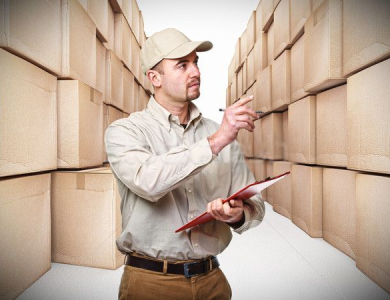Cargo volume inspection
Weighing Survey: Process, Standards, and Practical Applications
Weighing surveys are a critical service in logistics, import-export, construction, and manufacturing. This process helps accurately determine the weight of goods, raw materials, or structures, ensuring transparency in commercial transactions, payments, and legal compliance. This article provides an overview of weighing surveys, applied methods, international standards, and real-world applications across industries.
1. What is a Weighing Survey?
A Weighing Survey is the process of measuring, inspecting, and certifying the weight of goods, materials, or products using scientific methods and specialized equipment. The results are used to:
-
Determine the commercial value of goods in trade and transportation.
-
Calculate shipping and handling costs.
-
Ensure compliance with customs and tax regulations.
-
Resolve disputes among involved parties.
1.1. Applicable Goods
-
Import/export goods (agricultural products, minerals, containers).
-
Construction materials (cement, steel, sand, stone).
-
Bulk cargo (coal, ores, grains).
-
Chemicals, petroleum, and gas.
2. Why is a Weighing Survey Necessary?
2.1. Ensuring Fair Trade
-
Prevents weight fraud (e.g., export shipments being underweight).
-
Accurately determines payment amounts between buyers and sellers.
2.2. Legal Compliance
-
Customs requires weight verification for tax calculation.
-
International standards (ISO, ASTM) mandate weight inspections.
2.3. Reducing Logistics Risks
-
Avoids overload penalties in road and sea transport.
-
Ensures load balance for safe transportation.
2.4. Dispute Resolution
-
Provides legal evidence in delivery quantity conflicts.
-
Supports insurance claims for lost or damaged goods.
3. Weighing Survey Methods
3.1. Direct Weighing
-
Uses electronic scales, platform scales, truck scales.
-
Applies to packaged goods, containers, trucks.
3.2. Indirect Measurement
-
Volume + density calculation (for bulk goods like grains, coal).
-
Physical formulas (for liquids like oil, chemicals).
3.3. Draft Survey (Ship Measurement)
-
Determines cargo weight based on ship’s draft marks.
-
Commonly used for bulk cargo, coal, ores.
3.4. 3D Scanning & Laser Technology
-
Measures oversized cargo (e.g., timber, machinery).
4. Standard Weighing Survey Process
4.1. Pre-Survey Preparation
-
Calibrate weighing equipment (scales, meters, scanners).
-
Select appropriate method (direct/indirect weighing).
-
Confirm timing and location with the client.
4.2. Conducting the Survey
-
Weigh individual batches or take representative samples.
-
Record detailed data (time, environmental conditions).
-
Take photos/videos as evidence.
4.3. Report Issuance
-
Summarize results and compare with contract terms.
-
Identify discrepancies (if any) and propose solutions.
-
Issue a Survey Certificate (legal proof).
5. International Weighing Standards
5.1. ISO 9001 (Quality Management)
-
Ensures transparent and accurate procedures.
5.2. ISO/IEC 17020 (Inspection Body Standards)
-
Defines technical competency for surveyors.
5.3. OIML (International Organization of Legal Metrology)
-
Specifies weighing equipment accuracy.
5.4. Draft Survey Standards
-
Guidelines for calculating ship cargo weight.
6. Practical Industry Applications
6.1. Import-Export
-
Pre-clearance container/bulk cargo inspections.
-
Shipping cost calculations based on weight.
6.2. Construction
-
Verifies concrete, steel, and material quantities.
-
Ensures project timelines and quality.
6.3. Agriculture & Food
-
Measures rice, coffee, sugar before packaging.
-
Prevents losses during transport.
6.4. Mining
-
Certifies coal and ore export weights.
-
Detects resource declaration fraud.
7. Choosing a Reliable Surveyor
7.1. Evaluation Criteria
-
Government-accredited (Ministry of Science & Technology, Directorate for Standards & Quality).
-
ISO/IEC 17025-certified labs.
-
Uses modern, precise weighing methods.
7.2. Leading Surveyors
-
SGS (Switzerland)
-
Bureau Veritas (France)
-
Intertek (UK)
-
QUATEST 3 (Vietnam)
8. Cost & Timeframe
8.1. Cost
-
Basic: 500,000 – 5,000,000 VND (varies by scope).
-
Complex (e.g., ship draft survey): Up to 10,000,000 VND.
8.2. Duration
-
Standard: 1–3 days.
-
Advanced (e.g., draft survey): 3–7 days.
Conclusion
Weighing surveys are vital in trade and manufacturing, ensuring accuracy, transparency, and legal compliance. Choosing a reputable surveyor minimizes risks and enhances business efficiency. Companies should proactively adopt this service to optimize shipping and logistics.
Contact professional weighing surveyors today for expert advice!
 Email: surveyor.oceanhigh@osivietnam.com
Email: surveyor.oceanhigh@osivietnam.com
 Hotline:
Hotline: 





